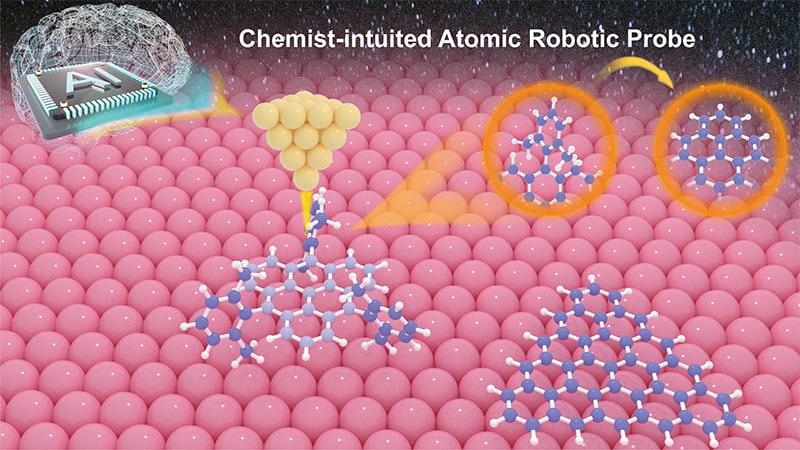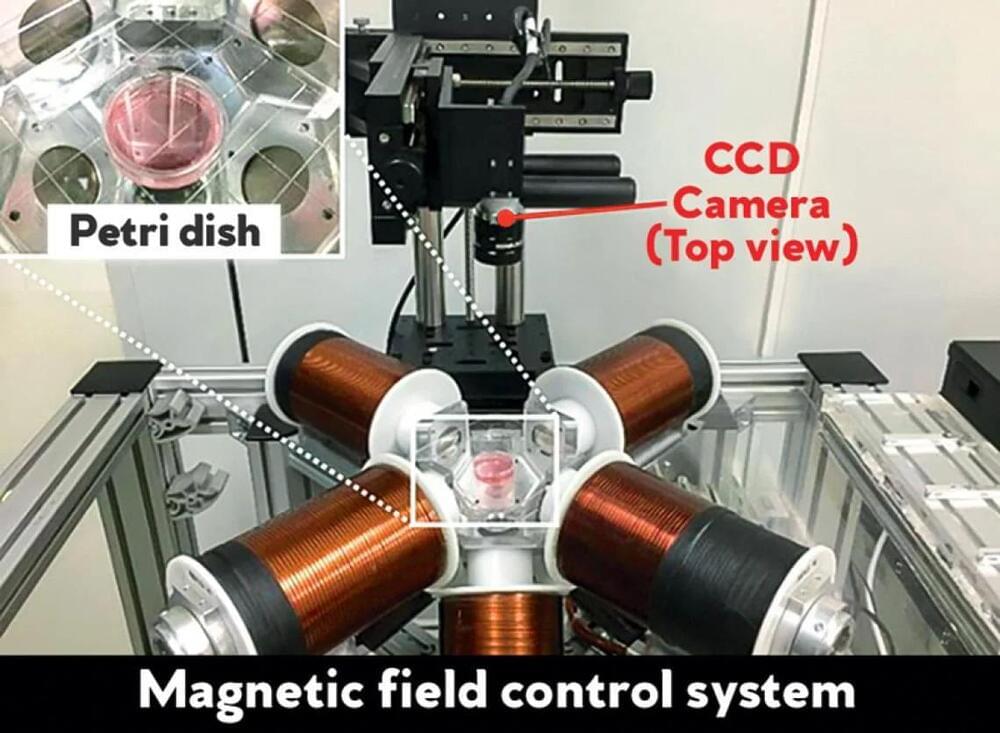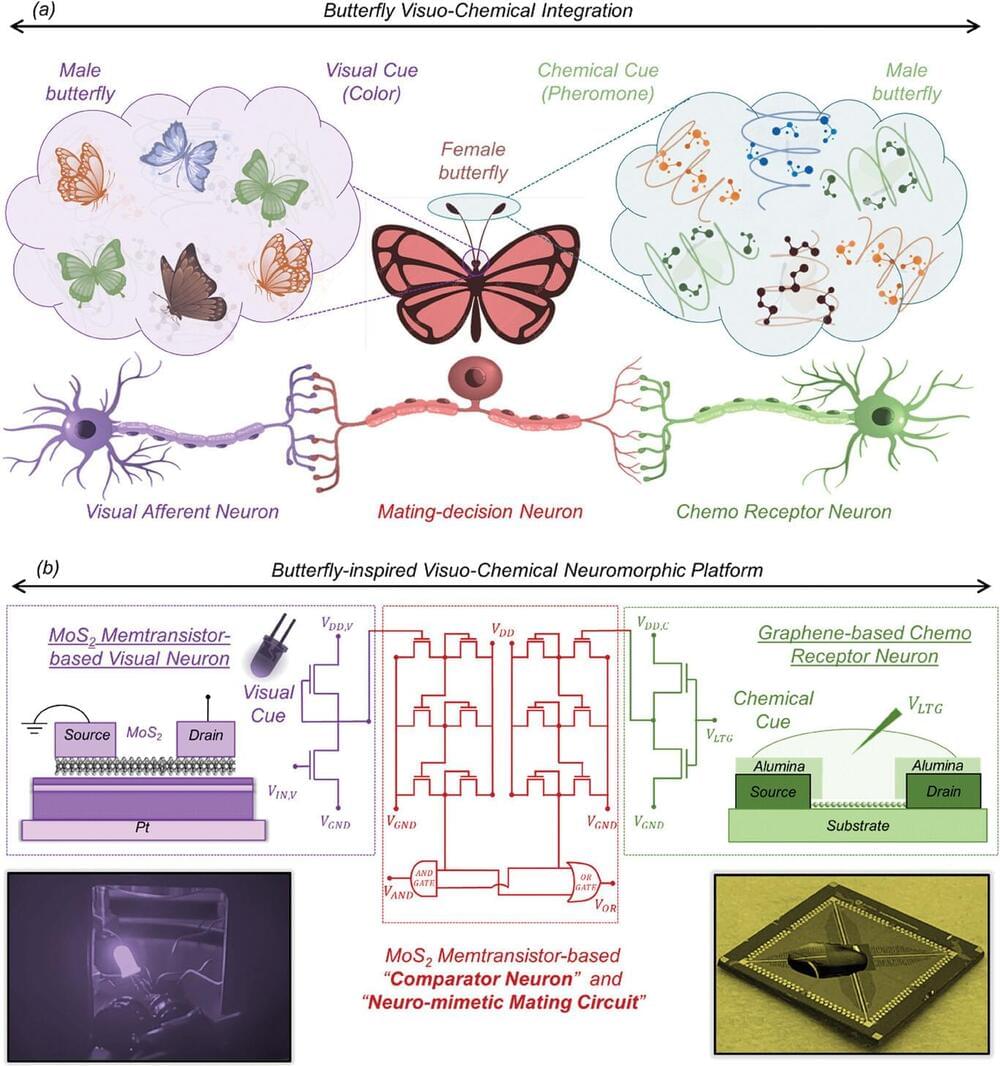Mar 2, 2024
AI-enabled atomic robotic probe to advance quantum material manufacturing
Posted by Dan Breeden in categories: chemistry, quantum physics, robotics/AI
Scientists from the National University of Singapore (NUS) have pioneered a new methodology of fabricating carbon-based quantum materials at the atomic scale by integrating scanning probe microscopy techniques and deep neural networks. This breakthrough highlights the potential of implementing artificial intelligence (AI) at the sub-angstrom scale for enhanced control over atomic manufacturing, benefiting both fundamental research and future applications.
Open-shell magnetic nanographenes represent a technologically appealing class of new carbon-based quantum materials, which host robust π-spin centres and non-trivial collective quantum magnetism. These properties are crucial for developing high-speed electronic devices at the molecular level and creating quantum bits, the building blocks of quantum computers. Despite significant advancements in the synthesis of these materials through on-surface synthesis, a type of solid-phase chemical reaction, achieving precise fabrication and tailoring of the properties of these quantum materials at the atomic level has remained a challenge.
The figure illustrates the chemist-intuited atomic robotic probe that would allow chemists to precisely fabricate organic quantum materials at the single-molecule level. The robotic probe can conduct real-time autonomous single-molecule reactions with chemical bond selectivity, demonstrating the fabrication of quantum materials with a high level of control. (© Nature Synthesis)

















